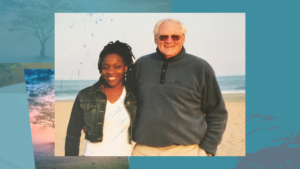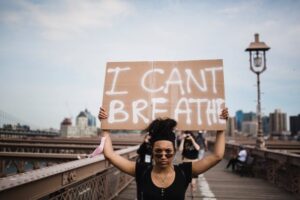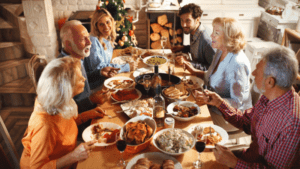I had just ended my last training session on the Contemplative Discovery Pathway Theory (CDPT) with Dr. David Allen in The Bahamas when I received the NPR news alert that more than 1,000 people were dead in Nepal. I read it aloud not really focusing but making a mental note to come back and take in this enormous loss to the world. I did come back to the news. But it was the next day when I turned on my laptop and read about Dan Fredinburg, the Google executive who had been killed on Mt. Everest during an avalanche caused by the quake in Nepal.
One Step Closer
The catastrophic effects of the earthquake had been put into context for many at Google and the victim’s family in the U.S. I read the heartfelt good-bye note by Sophie Bush a friend of Dan Fredinburg’s. It was touching as I, too, had been spending time thinking about life and death on this unplanned, unexpected journey I found myself on in The Bahamas. I had not planned to attend the Contemplative Discovery Pathway training in The Bahamas, but I knew I would meet Dr. Allen. The CDPT is an outline of life or the path of life. On this path we come to see with “new eyes” what has always been throughout our life—the hand of God. Yes, that means even our hurt trails lead us to God if we remove the emotional and mental blocks and allow God’s healing love to occupy their spaces instead. Pain and suffering happen to us all; and for this moment in time, the lives of the thousands of people—rich and poor—in Nepal, India, are united with us all. Isn’t this the truth Sophie grasps in her letter to us?
I’m devastated and simultaneously so deeply grateful to have known and loved him, and to have counted him as one of my tribe. I was so looking forward to our planned download of “all the things” when he got home. I am crushed that I will never hear that story. I am crushed knowing that there are over 1,000 people in Nepal suffering this exact feeling, knowing that they too will never hear another tale about an adventure lived from someone that they love. Disasters like this are often unquantifiable, the enormity is too much to understand. Please remember that each person who is now gone was someone’s Dan.
Disasters, tragedies, and events at the catastrophic level shake our world and shatter our hearts.
We are reminded of our frailty as human beings. We are vulnerable and reminded that the lives we build with materialism or wealth are only temporary and only serve to create a false identity of who we think we are. But death or the loss of a loved one speaks powerfully to us, if we listen.
Life is Transitory
The loss of a loved one or great tragedies such as the one in Nepal is an opportunity for us to enter more fully and deeply into life—that in the end we are more than what we see; we are “spiritual beings having a human experience” (Pierre Teilhard de Chardin). To be human is to live life fully and deeply as we contemplate it. Our own death is a part of this contemplation. We should be motivated to live more deeply, to feel more deeply, to walk in someone else’s shoes and feel their pain, to share in their suffering or even to rejoice with them, and to become aware of life more deeply. This is live living, and it is transformational. When we connect to the soul of another human being, we are sharing in a sacred moment of life. Jesus’ last supper with his disciples is reminiscent of such a moment. They broke bread and drank wine together. This was a holy moment. Jesus’ disciples did not fully understand it at the time. Likewise when we sit at the table (or some of us may need to return to the table), remember we are not merely eating a meal together, but we are sharing in a sacred moment.
How many of us have had a last supper with a friend or loved one and did not know? What if you had known this would be your last meal together? Would you have purposely slowed time down? Would you have inhaled more deeply the air that surrounded you? Would you have captured every morsel of word that fell from the table? Would you have even made time to sit at the table?
Yes, disasters, such as the one in Nepal, remind us of our vulnerability and that as human beings we cannot control everything in our lives. There is a sovereign God who we cannot manipulate or control. But we are also reminded that there is a benevolent God who we can entrust every experience to. That even our hurt trails can lead us to God’s love.









